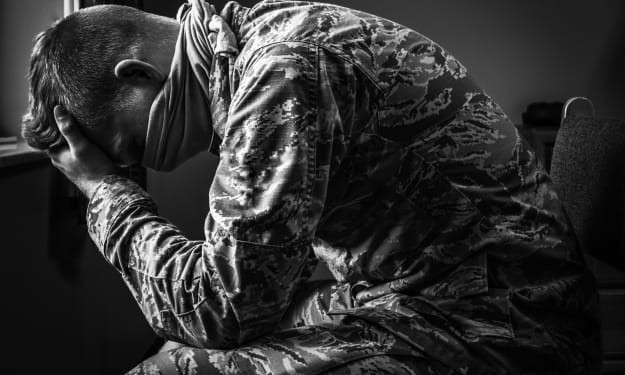
We were playing therapeutic ping-pong, the kind where you don’t keep score, you don’t make tricky shots, and you try harder to keep the ball in play than make points. A steady echoing rhythm filled the empty room. Plunk-tap. Plunk-tap. Sometimes plunk-plunk-tap. Sometimes a pause between the beats where you might have heard us breathing, sometimes a scuffle for the ball when it went awry.
We had been playing for twenty minutes. I hadn’t thought to ask why this cavernous room, which could easily seat a hundred people, had only a ping-pong table and a battered piano up against one wall. I hadn’t thought to ask if my opponent had anything better to do with his time than play silent table tennis with an exhausted, wrung-out college student.
It was all I could do to keep the ball in motion.
Plunk-tap. Plunk-tap.
I wouldn’t have even known there was a ping-pong table if he hadn’t gotten up during the communal dinner and announced, in his lilting German accent, that he was available for any of us, if we needed to talk. No one had taken him up on the offer. Half our group had bolted from the youth conference center in search of alcohol, cigarettes, and other ways to exhale. The other half had headed for our rooms in search of other connections: internet and long distance cell phone calls.
I walked up to him and said, “Hey.”
“How are you?” he asked. “Do you want to talk?”
I shrugged. He looked down, sized me up, and made a decision.
“Come with me.” He led me to the big room, to the table, and picked up a ball and paddle, nodding at me with a question in his eyes.
I almost laughed. Or cried. He couldn’t know she taught me to play, on the rain-warped table in her basement. He couldn’t know this was my special game with her. I said nothing. Picked up my paddle. Stepped back from the edge of the table.
I don’t remember who started talking first, but I remember him explaining how he’d come to work at the youth center. Germany still had compulsory national service, he said, even without a proper military. Everyone had to do something. This assignment - staffing this particular center - was a prestigious position in the civil service. Very competitive. He’d gone through multiple rounds of interviews and extensive training before beginning his work here.
That training must have done something right, because I remember as I started talking back, the weight of the day eased a little bit. I hadn’t talked to almost anyone since breakfast. Few of us had. Some had walked through the day in tears, others clenching their fists, their breath coming in quick, angry bursts. I staggered through the tour, heard everything around me as if through water, and ate dinner in silence.
It didn’t surprise him to hear I’d had family who died here, at Auschwitz.
That the grandmother who taught me to play ping-pong lost her two sisters, both her parents, her grandmother, and dozens of other family members to the camps.
It didn’t surprise me to hear he’d had a grandfather who was in the SS, the elite Nazi paramilitary group.
It made sense to me, then: he’d applied for the Auschwitz youth center, which was really more of a hostel for traveling high school and college students, out of guilt. To compensate for his grandfather’s past. Maybe his whole family’s past.
I could understand that. When I wasn’t studying the Jewish history of central and eastern Europe, I was spending my semester doing an internship for Amnesty International. My job involved reviewing the human rights abuses and violations of various countries and sorting them into broad categories.
I’d started alphabetically from the bottom up, which meant I quickly reached the United States, which had dozens of listed abuses, some familiar from the headlines and others more horrifying for their obscurity. I felt the weight of my country’s crimes and spent much of my internship grappling with the guilt, paralysis and urgent need to do something about all that I’d learned.
Coming to Auschwitz was a perverse kind of relief from the struggles of my internship: here, at least, history’s verdict was clear, and my people bore no responsibility. I couldn’t be held accountable for this atrocity, too. This was an older, more familiar grief, one I’d been carrying since I started asking questions about my family’s history. I can’t remember how old I was when I learned about the Holocaust. Younger than nine, at least. Maybe six or seven. If I’d learned anything from the day’s tour of the death camp, it was that I’d maybe finally run out of tears.
“I understand,” I said to my guide. “I’m doing this internship that involves looking at the worst parts of my country, and I feel so guilty about everything that’s happening - plus, all the things that came before me that my family did nothing to stop, or even actively encouraged. If I had the chance to do what you’re doing, helping the people who were most affected or their descendants, I would. Less guilt, you know?”
He paused for a moment to catch the ping-pong ball and stop the game. He gently laid his paddle down, then braced his palms on the table, bending over before he lifted his head and looked me straight in the eye.
“No guilt,” he said quietly.
“No?”
He shook his head. “I am not my grandfather,” he said. “I am not responsible for the past. But I am completely responsible for what comes next. For the future. That is why I am here.”
The words landed with a gentle-but-rock-solid conviction. I could tell he’d said them before - it had to have come up, with hundreds of students - many Jewish - coming through the center each year. I could tell he’d seen every color and shape of shellshock, every pitch of grief in his time in the civil service. Between experience and training, he had expertly carved a space for me to finally process my feelings about the long, hard day, holding my pain without taking it on his own shoulders.
Before we split to go to bed, I reached to give him a hug. He held on far longer than I expected him to, and I felt myself sag against his chest. He was the only person to hug me in the months I'd been abroad. In his arms, I felt lighter than I had in weeks.
Guilt is what happens when you carry other people’s pain. I’d been trying to carry an entire country’s. In one game of ping-pong and four sentences, he gave me permission to put it down.
Sixteen years later, I still haven’t picked it up. That short phrase - no guilt, only responsibility - has guided and shaped my work and activism. When I talk to younger activists, especially those who may be just beginning to understand their privilege or how white supremacy has given them structural advantages in life, I pull that phrase out like an old friend. It helps people move from guilt-induced paralysis to action and acceptance, just as it did for me all those years ago in that conference room, over that beat-up ping-pong table.
"I'm sorry," I said into his shoulder as we hugged. "I know we're strangers and all, but this feels wonderful."
He didn't answer, but squeezed me gently, and waited until I let go first.
About the Creator
Dane BH
By day, I'm a cog in the nonprofit machine, and poet. By night, I'm a creature of the internet. My soul is a grumpy cat who'd rather be sleeping.
Top Story count: 17
Check out my Vocal Spotlight and my Vocal Podcast!






Comments (2)
Excellent piece, the lines '“I am not my grandfather,” he said. “I am not responsible for the past. But I am completely responsible for what comes next' reminds of me of the generation just before me who I still have to deal with, but I am not them.
Heartfelt, emotional, amazing. Great job on this story, and you told it so well. Well done.